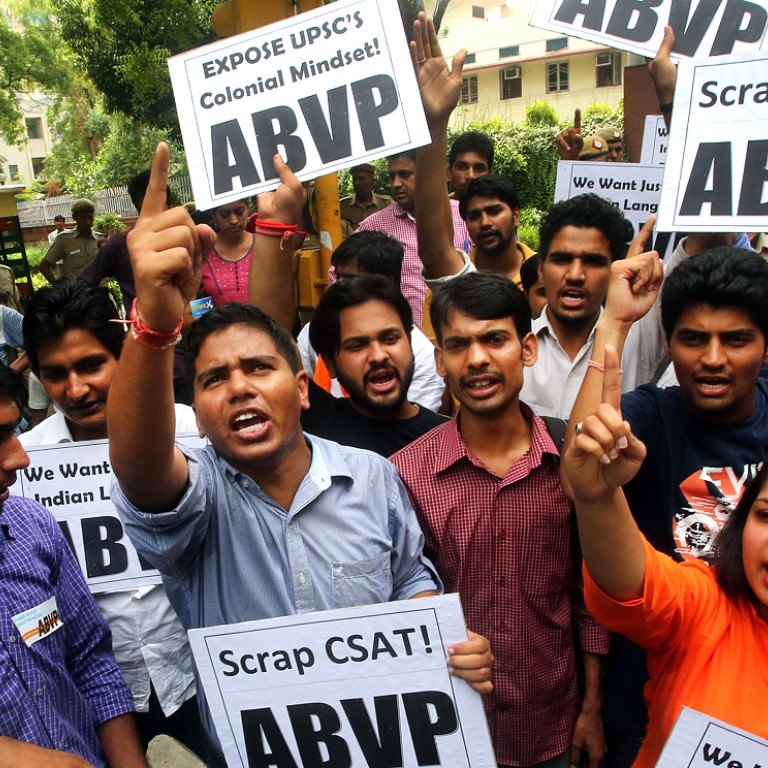
Civil service test stirs up India's language anxieties
Lokpati Tripathi, a thin, 23-year-old Hindi literature graduate, has dreamed of joining India's civil service for the past eight years. He has studied non-stop for the intensely competitive entrance tests for the past 18 months.
Lokpati Tripathi, a thin, 23-year-old Hindi literature graduate, has dreamed of joining India's civil service for the past eight years. He has studied non-stop for the intensely competitive entrance tests for the past 18 months.

"Can only those who are from the English-speaking class of elite Indians become top bureaucrats?" Tripathi asked on his fourth day of a hunger strike in New Delhi. "Is there no place for local languages in India today?"
The question of which language gets primacy is deeply divisive for a country that inherited English from its British colonial rulers but has 22 official languages of its own. Many observers assumed that India had settled the divide decades ago when it allowed each state to have its own official language and made Hindi the official language of the national government. English may be used for official business.
But in recent weeks, deep anxieties over language have resurfaced, ironically at a time when the new prime minister, Narendra Modi, 63, has declared his preference to use Hindi.
About 550 million Indians speak Hindi, and more than 125 million speak English in addition to their mother tongues.
India's image as a hub of information technology has grown in the past two decades, fuelled by hundreds of thousands of English-speaking software engineers. English was widely acknowledged as the language of opportunity and growth, driving millions to enrol in private English classes.
But now, Hindi appears to have become the latest power accessory under Modi, who is a charismatic orator in Hindi and Gujarati but is not entirely comfortable in English.
Modi's government directed officials to use Hindi on official correspondence, in addition to English. Some non-Hindi-speaking southern states protested, forcing his government to clarify that the directive was meant only for Hindi states.
The news sent many of New Delhi's bureaucrats running off to look up words in Hindi dictionaries, according to reports.
Modi then declared that he would speak only in Hindi with international leaders.
"Modi is telling many in small towns of India that 'you don't need to speak English to grow. Do what comes naturally to you. Anything is possible'," said Sugata Srinivasaraju, author of the book .
Modi's message was not lost on Tripathi.
"Our prime minister did not need English to rise," he said.
Yet it may prove difficult to turn the clock back. "Students think English is the only way to survive in a big city and get a job," said Sandeep Sinha, director of the Oxford Software Institute, which teaches an English course. "This hunger for English isn't going to disappear easily."

